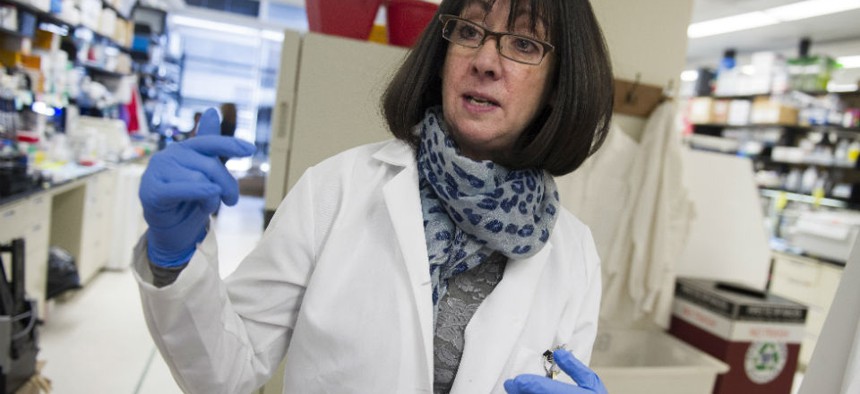Federal Employees -- They’re Just Like Us!
Lawmaker wants America to put a name and a face to the federal government.
This story has been updated.
The most compelling stories about public policy and government management are really about people. After all, people are behind ideas, processes and end results.
That’s what Democratic Sen. Ben Cardin wants Americans to remember when they think about the federal government. And that’s why the Maryland senator plans to highlight outstanding federal workers by detailing their accomplishments on the Senate floor in the weeks ahead, “so that Americans can understand government works for America.” Well, not always, but it can’t hurt to showcase the work of federal employees who are literally saving lives, as part of the larger effort to eliminate the across-the-board budget cuts that will fully resume in fiscal 2016 unless Congress intervenes.
“I think part of the problem is that Americans have come to accept that federal workers are nameless, faceless bureaucrats,” Cardin said March 10 on the Senate floor, before delving into the feats of Dr. Nancy Sullivan and Dr. William Gahl, both of whom work at the National Institutes of Health. “They aren’t. They are people who are patriotic Americans and dedicated to public service. They have families and support their communities.” In other words, they are just like everyone else.
“We can argue over whether we want bigger government or smaller government, but we should all agree we want better government. We can’t have better government when federal workers are constantly under assault. We need to stop treating the federal workforce like a rented mule.”
The “stop fed-bashing” argument isn’t new, and it’s not surprising that Cardin cares about federal workers, since so many of them live and work in his state. Like other federal agencies, the Bethesda-based NIH has faced budget cuts in recent years that make it harder for employees to do their jobs, and which many argue have endangered its ability to perform and fund research that improves public health. It makes sense that Cardin would start with NIH, which played a prominent role last year in educating the public about the Ebola virus and preventing its spread in the United States.
Cardin on Tuesday profiled Sullivan and Gahl in his remarks, lauding their work in immunology, vaccine development and solving medical mysteries. Sullivan, chief of the Biodefense Research Section in NIH's Vaccine Research Center, developed the first Ebola vaccine found to be effective in monkeys, and her work is considered vital to developing an Ebola vaccine for humans. President Obama has visited NIH to personally congratulate Sullivan on her work, which the Maryland senator pointed out.
Cardin likened Gahl to the fictional Dr. Gregory House, the tenacious medical Sherlock Holmes from the 2004-2012 television show “House.” The founding director of the Undiagnosed Diseases Program at NIH, Gahl helped discover the cause of a rare vascular disorder; in another case, he solved the mystery around why a patient’s muscles had grown abnormally large, resulting in a stem cell bone marrow transparent allowing her to lead a normal life.
It’s rare to hear the accomplishments of federal employees detailed in such a specific, personalized way outside of the annual Service to America Medals, which honors a select group of feds who have made outstanding contributions to public service. As Cardin put it, Sullivan and Gahl are “not nameless, faceless bureaucrats.” They aren’t exactly average, either. But he makes a fair point about the dangers of generalizing about a 2 million-person workforce whose jobs most American take for granted, whether it’s curing disease, protecting the borders, or ensuring people get their tax refunds and Social Security checks on time.
“At a minimum, they deserve our gratitude and respect,” Cardin said. “They also deserve a predictable and reasonable budget to support their critical work.” Lawmakers and others will continue to argue over where and how deep to cut agency budgets. That’s politics and government management. But it’s hard to argue with the idea that we’re all better off remembering that the government is powered by real people with real stories. A nameless, faceless bureaucracy is one without accountability -- and that’s very dangerous.
Correction: The original version of this post incorrectly identified Dr. Nancy Sullivan. She is the chief of the Biodefense Research Section in NIH's Vaccine Research Center.
NEXT STORY: Feds Will Miss a Pay Raise Champion




